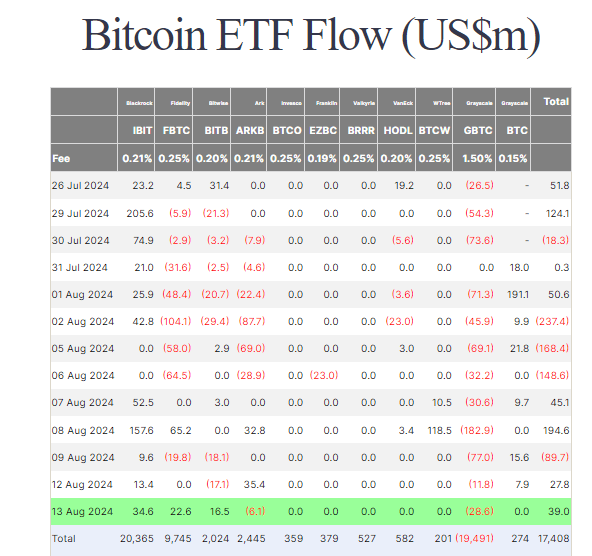The US Securities and Exchange Commission (SEC) is approaching a critical decision regarding the approval of spot Bitcoin Exchange-Traded Funds (ETFs).
As the deadline for Bitcoin ETF applications looms, there is a growing expectation that the SEC may grant its approval. However, there are significant concerns about ensuring fair competition in the market, particularly in light of the potential conversion of Grayscale Bitcoin Trust (GBTC) into an ETF.
Bitcoin ETF clear requirements for approval
Bloomberg’s ETF expert, Erich Balchunas, has provided insight into the potential conditions the SEC might impose for Bitcoin ETF approval.
Balchunas suggests that the SEC is likely to require applicants to provide clear language regarding cash-only creations and a signed agreement with an authorized participant (AP). These requirements are aimed at ensuring transparency and accountability in the ETF creation process.
Grayscale, one of the world’s largest crypto asset managers, has already fulfilled these conditions. However, Grayscale’s existing advantage in terms of embedded assets and trading volume has raised concerns at the SEC.
Balchunas points out that Grayscale’s GBTC boasts $20 billion in embedded assets and a daily embedded trading volume of $150 million, instantly placing it among the top 1% of all ETFs. The SEC’s primary concern is to prevent any single participant from gaining an unfair advantage in the market.
The dilemma facing the SEC
The SEC now faces a delicate dilemma. While it aims to foster fair competition among all qualifying issuers, the approval of GBTC as an ETF could risk creating a market “kingmaker.” This would tilt the playing field in favor of Grayscale, potentially disadvantageous to other participants.
Balchunas also highlights that including clear language on cash-only creations in Bitcoin ETF applications may not necessarily deter investors. Cash-only ETFs, similar to grantor trusts like GBTC, offer advantages such as being exempt from taxation at the fund level.
Furthermore, when examining the approximately 450 cash-only ETFs already on the market, their spreads and premium/discount ratios appear to be within reasonable ranges.
In its pursuit of fairness, the SEC’s main objective is to establish a level playing field for all ETF issuers. The requirement for clear language on cash-only creations and signed agreements with authorized participants is intended to achieve this goal.
However, the commission must carefully weigh the impact of approving GBTC due to its substantial market advantage.
Implications for the Bitcoin ETF market
The SEC’s decision regarding Bitcoin ETF approval will have significant implications for the competitive landscape of the market. It could potentially influence the success of established players like Grayscale and industry heavyweights such as BlackRock and Fidelity. As the cryptocurrency market continues to evolve, the SEC’s role in shaping its regulatory framework is pivotal.
In the midst of these developments, it’s important to note that the price of Bitcoin currently stands at $42,800, reflecting a modest increase of 0.6% within the last 24 hours.
However, over the past seven days, the leading cryptocurrency has experienced a price decline of 2.3%. This price volatility underscores the importance of regulatory decisions like the approval of Bitcoin ETFs in providing stability and legitimacy to the cryptocurrency market.





